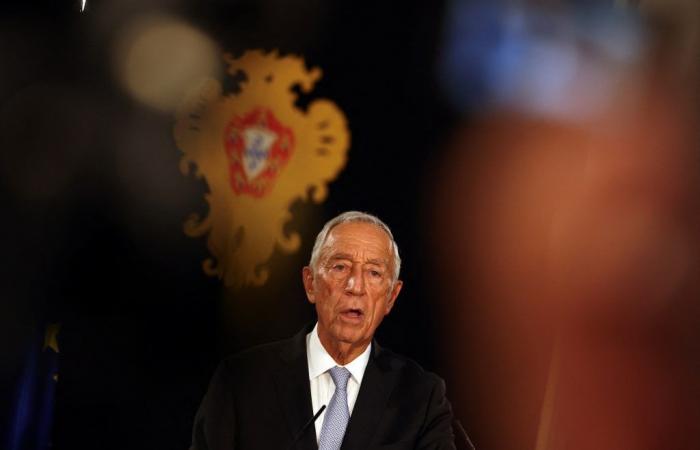LISBON (Reuters) – Portugal’s government said on Saturday it refuses to initiate any process to pay reparations for atrocities committed during the slavery and colonial era, contrary to previous comments by President Marcelo Rebelo de Sousa.
Between the 15th and 19th centuries, six million Africans were kidnapped, forcibly transferred across the Atlantic on Portuguese ships and sold into slavery, mainly to Brazil.
Rebelo de Sousa said on Saturday that Portugal could use several methods to pay reparations, such as canceling debts owed by former colonies and providing financing.
Free Spreadsheet
Avoid assets that yield less with this free tool
Download the InfoMoney Fixed Income Calculator and compare asset profitability
The government stated in a statement sent to the Portuguese news agency Lusa that it intends to “deepen mutual relations, respect for historical truth and increasingly intense and close cooperation, based on the reconciliation of brotherly peoples”.
But he added that “there is no process or specific action program” for paying reparationsnoting that this line was followed by previous governments.
He called relations with former colonies “truly excellent” and cited cooperation in areas such as education, language, culture, health, as well as financial and economic cooperation.
Continues after advertising
On Tuesday, the president said Portugal was responsible for crimes committed during transatlantic slavery and the colonial era and suggested reparations were needed.
His words provoked strong criticism from right-wing parties, including the junior partner of the ruling Democratic Alliance coalition, the CDS-Partido Popular, and the far-right Chega party.
The leader of the CDS-Partido Popular parliamentary group, Paulo Nuncio, stated on Thursday that his party “does not need to revisit colonial legacies and reparation duties that seem imported from outside”.
Continues after advertising
Chega’s leader, André Ventura, said that the president’s behavior was a “betrayal of the country”.
“We can’t sweep this under the rug or put it in a drawer. We have an obligation to pilot, to lead this (reparation) process”, the president told reporters this Saturday.
He stated that the country needs to take “responsibility for the good and bad aspects of what happened in the Empire and draw the consequences”.
The country’s colonial era lasted more than five centuries, with Angola, Mozambique, Brazil, Cape Verde, São Tomé and Príncipe, East Timor and some territories in Asia subject to Portuguese rule.
The decolonization of African countries and the end of the African empire came just months after the “Carnation Revolution” on April 25, 1974, which overthrew Europe’s longest fascist dictatorship and ushered in democracy.
Rebelo de Sousa said that reparations can take different forms, “such as debt forgiveness” for countries that were colonized, “lines of credit, financing and special cooperation programs”.
Tags: Government Portugal president rejects payment colonial legacy
--





